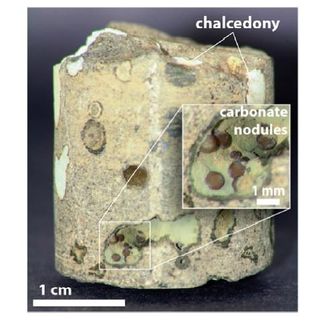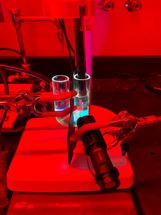BP Leads Oil Industry with the Launch of Pioneering Sulphur-free Fuels
18th February 2002 Edinburgh is the first city in the world to offer both Sulphur Free Unleaded and Sulphur Free Diesel, following another industry-leading cleaner fuels launch by BP.
Sulphur Free Unleaded and Sulphur Free Diesel will be available at 18 BP service stations in the Edinburgh area from 18 February 2002. BP's service stations in Scotland will be the first in its worldwide network to sell both fuels. The latest in a long line of innovative and pioneering fuel developments by BP(1), the new fuels are the cleanest petrol and diesel fuels available in the UK, containing virtually no sulphur. Sulphur Free Petrol and Sulphur Free Diesel are allowed to have a maximum sulphur content of 10 parts per million. This amount is so small that it is barely detectable with the most sophisticated laboratory test methods, which is why it is commonly referred to throughout the fuel and motor manufacturing industries as 'sulphur free' or 'zero sulphur'.
These new environmentally-friendly fuels are produced at BP's Grangemouth refinery in east Scotland. Grangemouth is able to manufacture Sulphur Free fuels for the Edinburgh market as it is the only UK refinery with world-class hydrocracking technology. The fuels will be the cleanest available anywhere in the UK, and are six years ahead of EU legislative requirements(2). Immediate environmental benefits include the reduction of particulate emissions that are a cause in the development of 'acid rain', and a reduction in sulphur dioxide emissions that create air pollution and contribute to respiratory problems. There are significant benefits to the motorist too. Sulphur Free Unleaded and Sulphur Free Diesel improve catalyst efficiency and are treated with advanced additive technologies to optimize performance and fuel economy. Despite higher refinery costs, the new Sulphur Free fuels will be sold at the same price as BP's current Ultra Low Sulphur fuels, Cleaner Unleaded and Cleaner Diesel.
In addition to the roll out of the fuels to its service stations in Edinburgh, BP has agreed to supply Sulphur Free Diesel to First in Edinburgh for use in its 260-strong city bus fleet. The deal will include five First refuelling sites in Edinburgh and the Lothians, and involve 400,000 journeys every week, covering routes spanning the whole Lothian region, from as far afield as Glasgow in the west and Dunbar in the east.
Graham Sims, head of BP Retail in the UK, said: "BP is committed to developing fuels that maximise performance but minimise exhaust emissions. We are working in all aspects of our industry towards lowering emissions for the future(3), and believe that people share our commitment to a cleaner environment through choosing cleaner fuels. Edinburgh is just the first step. "The fuels are produced at our Grangemouth refinery and build on the experience of previous launches of Ultra Low Sulphur Unleaded and Ultra Low Sulphur Diesel. While these new Sulphur Free fuels increase complexity in terms of logistics and refining, they reinforce Grangemouth's position at the forefront of clean fuels manufacture."
Deputy Minister for Enterprise, Transport and Lifelong Learning, Lewis Macdonald, said: "I am delighted that BP have launched this new, more environmentally friendly fuel and that they have chosen the Edinburgh area in which to do so. The Scottish Executive is committed to improving the environment in which we live and work and this initiative by BP is an excellent example to all industries."
Welcoming the arrival of sulphur free fuels in the UK, Department of Transport, Local Government and the Regions Minister David Jamieson said: "This will help make Edinburgh a cleaner city. But sulphur free fuels are not just good for the local environment. They also open the way for new vehicle technologies like GDI, which will give better fuel efficiency as well as reducing greenhouse gas emissions. I look forward to sulphur free fuels becoming available to more and more motorists." Gordon Dewar, First Director, Scotland (East), said: "First is delighted to be working with BP in Edinburgh and the Lothians to bring their new sulphur free diesel to the UK bus industry. First has consistently led the industry in the development of environmental initiatives and I am pleased to be working in partnership with BP in taking this latest step forward in Edinburgh."
Notes to Editors: BP Sulphur Free Petrol - Improves the efficiency of the catalyst on car exhausts to remove pollution - Enables engine manufacturers to further develop and release GDI engines which are the most fuel efficient petrol engines available - GDI engine development will enable less fuel to produce more power - GDI engines are lean burn, and therefore are more efficient and produce less carbon dioxide - Enables development of De-Nox technology for exhausts, which also reduce nitrogen oxide emissions that cause smog BP Sulphur Free Diesel Dramatically reduces the amount of ultra fine particles expelled in the exhaust that can contribute to respiratory problems such as asthma - the level of particulate emissions is one of the key air quality issues that need to be addressed in cities.
(1) BP led the development of cleaner fuels with the introduction of Ultra Low Sulphur Diesel (ULSD) in May 1999, and Ultra Low Sulphur Petrol (ULSP) in February 2000. (2) Proposed EU legislation requires sulphur-free fuels to be made readily available from 2005, and available from all sites by 2008. Coinciding with this, the EU has set much stricter emission limits on new vehicles manufactured from 2004. (3) BP's commitment to a cleaner environment and sustainable energy has led to the development of the UK's first eco-site at Hornchurch, London, scheduled to open in February 2002. Adopting a holistic green approach to forecourt retailing, the site is powered entirely by renewable energy sources.
BP (UK) also has a partnership with the Woodland Trust, and to celebrate the first BP Connect opening in Scotland (BP Connect / Refinery, Grangemouth, June 2001), 1,100 trees were planted at Glen Finglas Wood.
For further information please contact Shaun Harley on 01908 853828 or Barbara Peen on 10908 852925.























































